Eastern Ribbonsnake (Thamnophis sauritus)
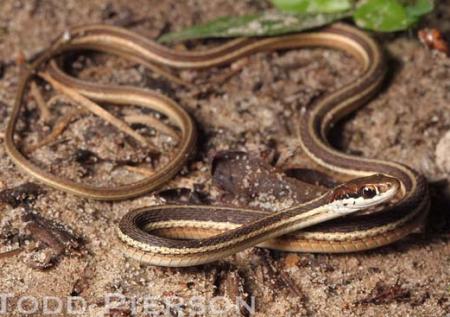
Click a thumbnail below to view the larger image:

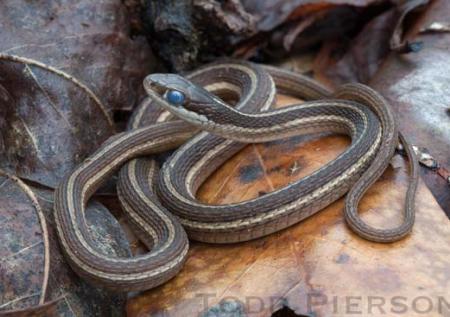
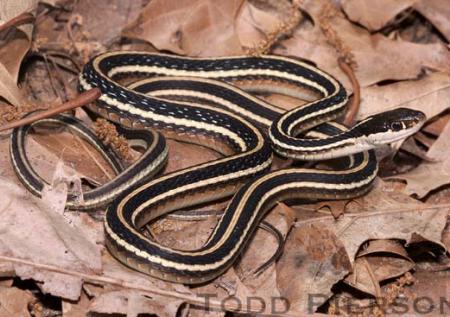
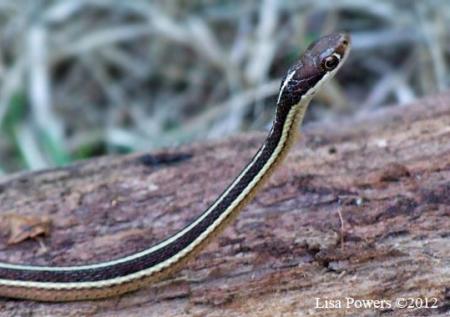
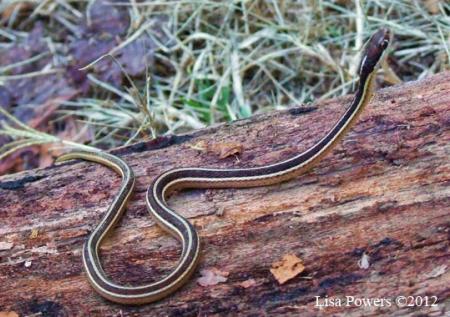
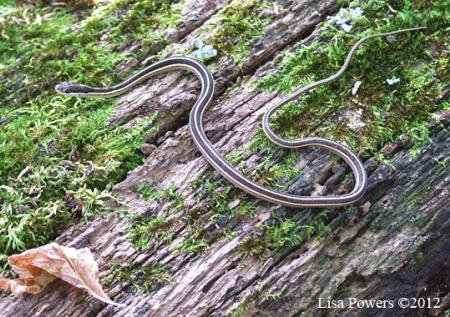

Have you seen a Eastern Ribbonsnake?
Click the Report Snake button below to reporting seeing a Eastern Ribbonsnake.
Report Snake SightingAppearance
Eastern Ribbonsnakes, slender relatives of Gartersnakes, have a gray to black dorsum with three yellowish stripes that run down the length of the body. One stripe runs down the center of their back and one stripe runs on each side. Their bellies are light colored. Their lip scales are white with no black outlines (see Common Gartersnake). Eastern Ribbonsnakes typically do not have a light spot on the top of their heads; this spot is usually present on Western Ribbonsnakes. Their scales are keeled and they have a single anal plate.
Size
Eastern Ribbonsnakes are typically 2 feet in total length.
Habitat/Range
Eastern Ribbonsnakes are found throughout the western third of Kentucky, with isolated populations in west-central and northeastern Kentucky. This species inhabits vegetation along the edges of wetlands, swamps, streams and rivers.
Natural History
Eastern Ribbonsnakes primarily prey upon amphibians and small fish. Mating occurs in the spring and females give birth to live young in the summer or early fall.
Notes/Miscellaneous
Although their first line of defense consists of escaping (often into water), Eastern Ribbonsnakes may bite and often release a pungent musk when captured.
